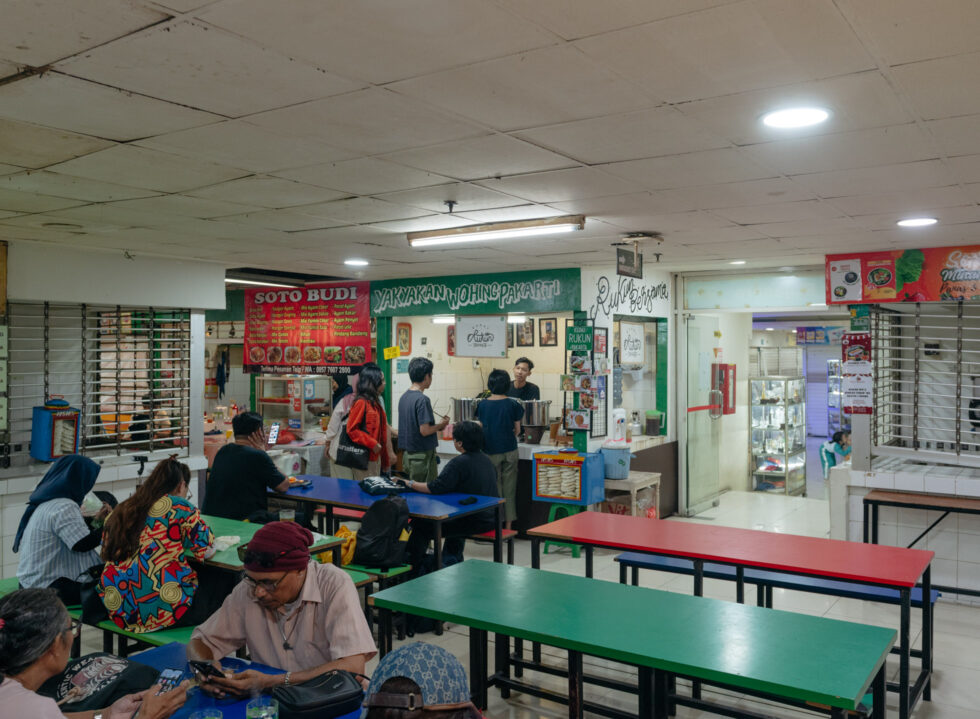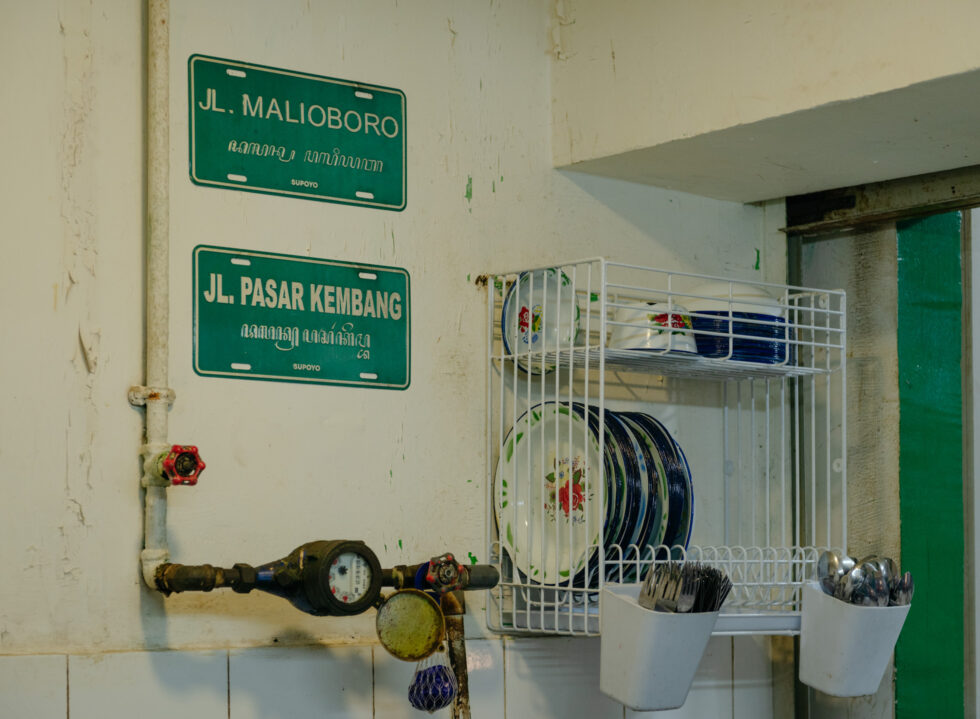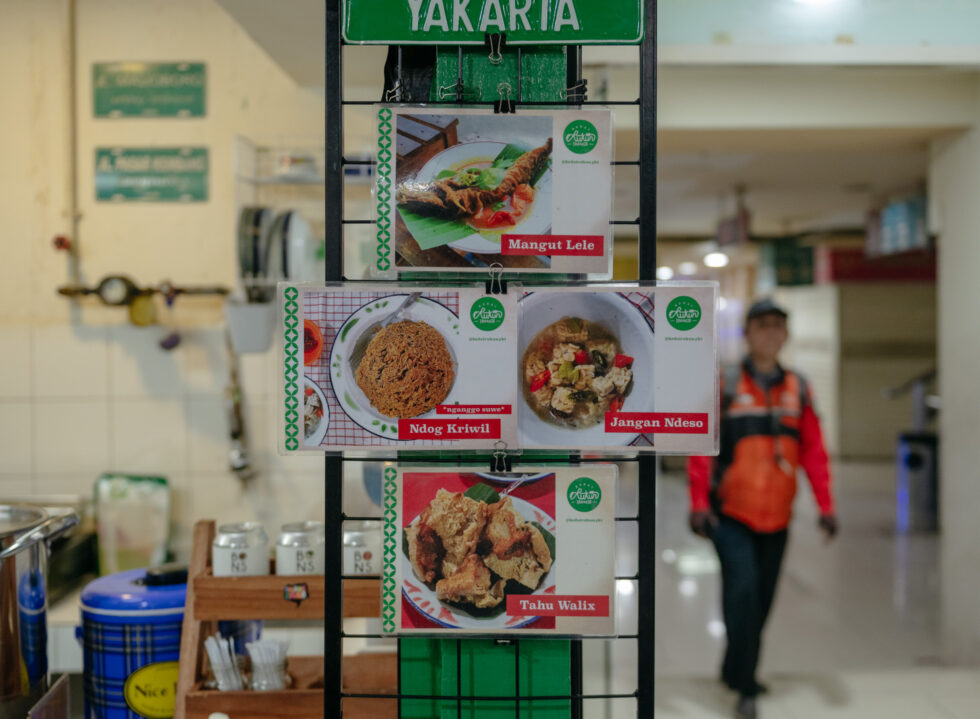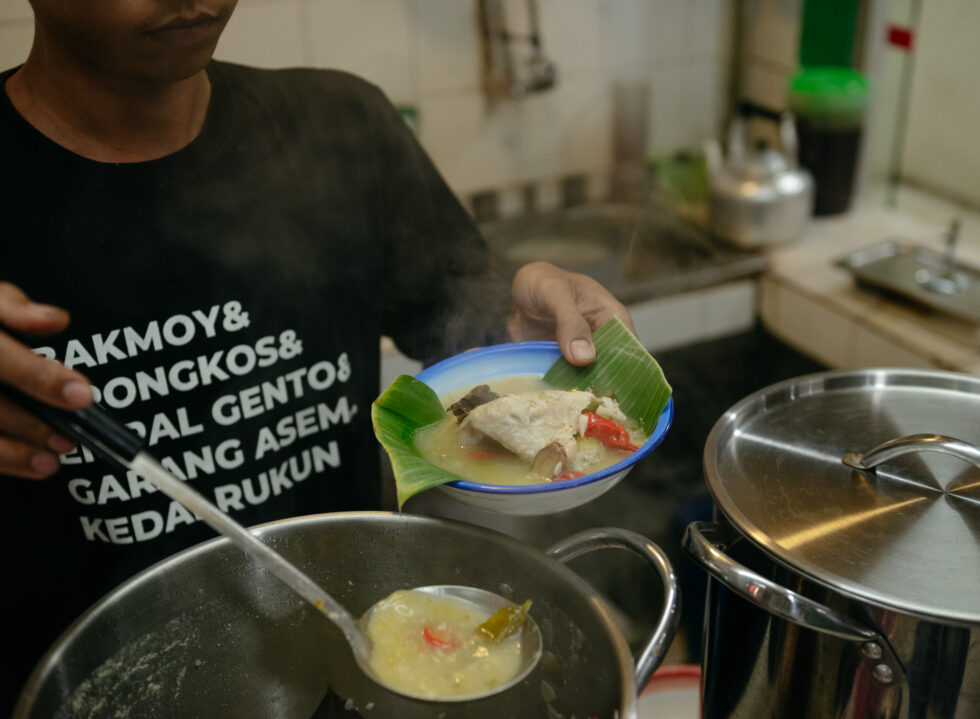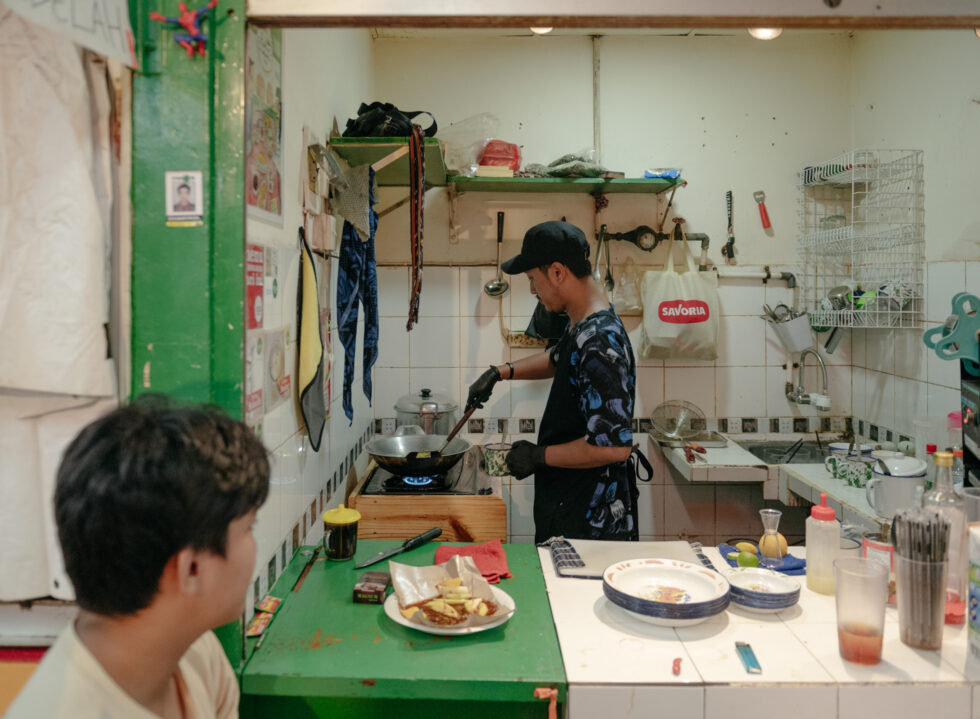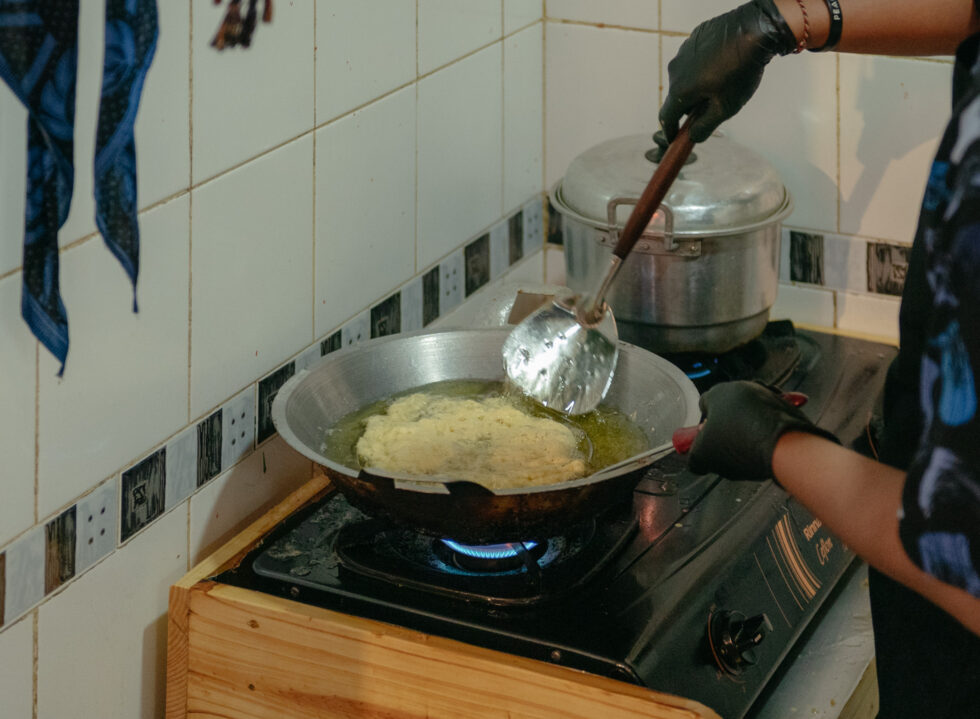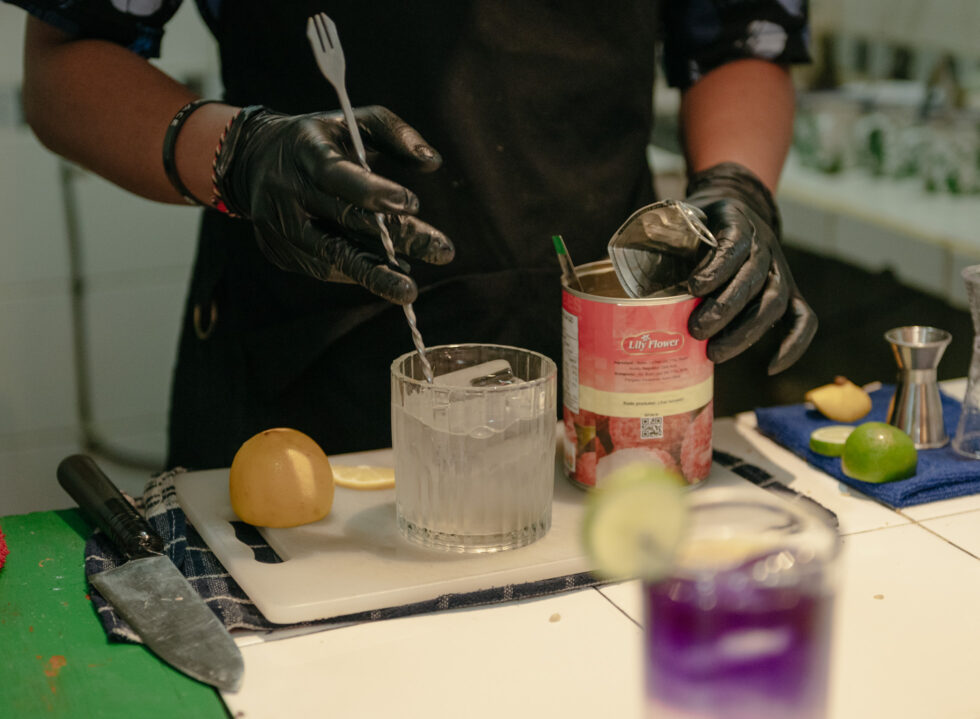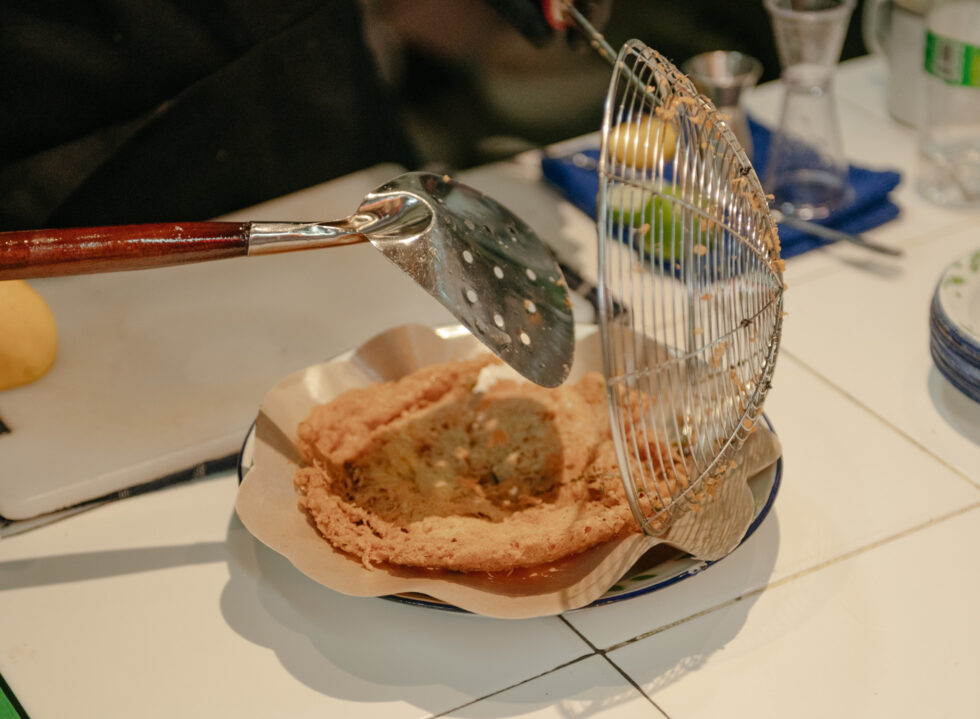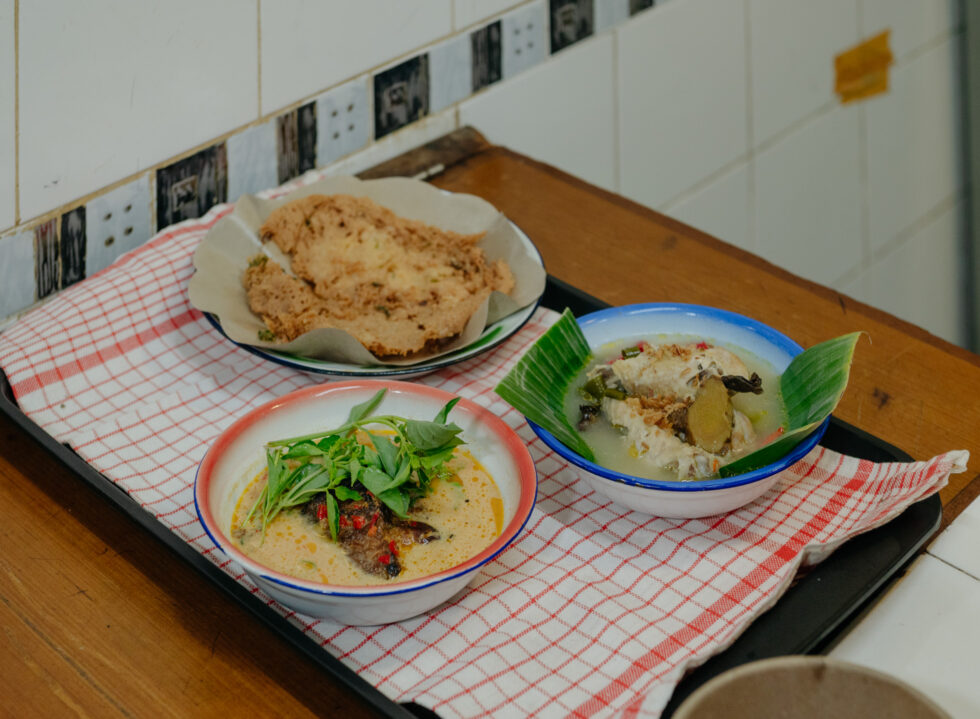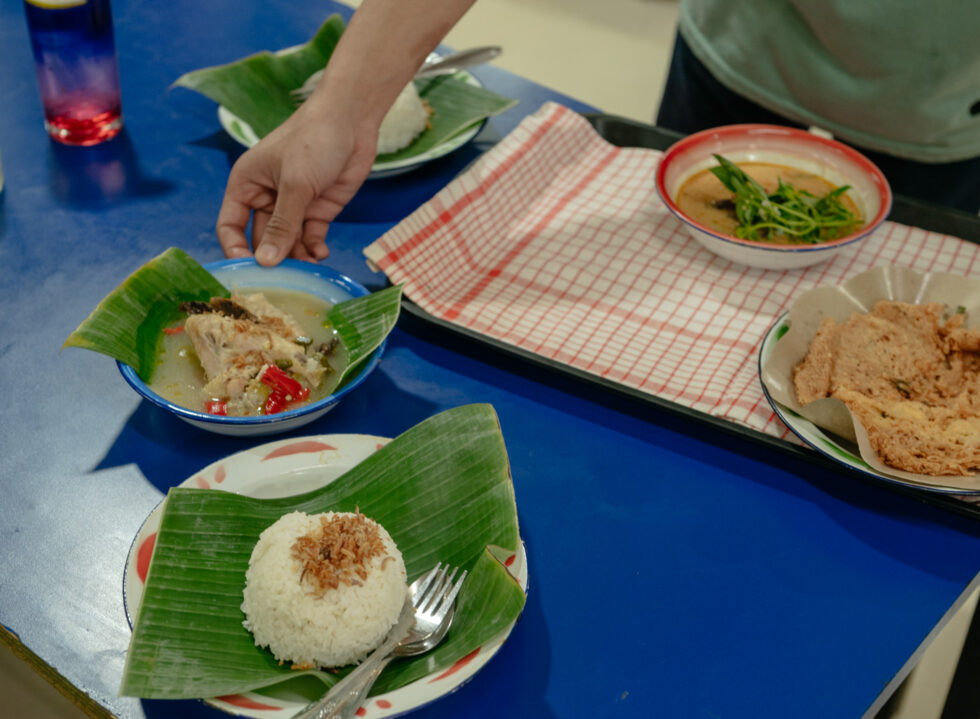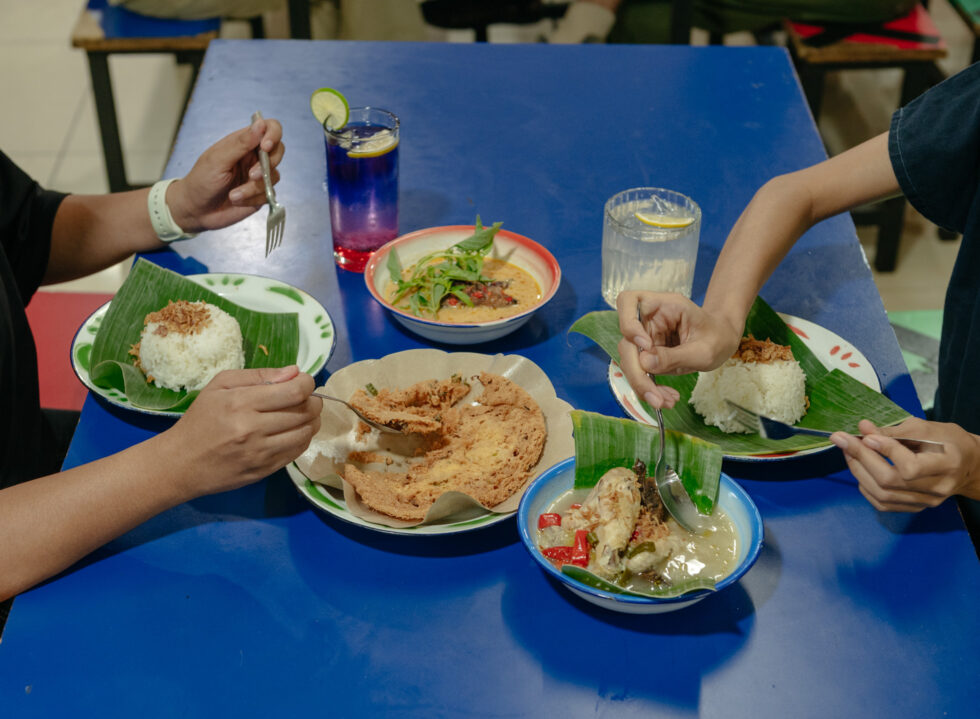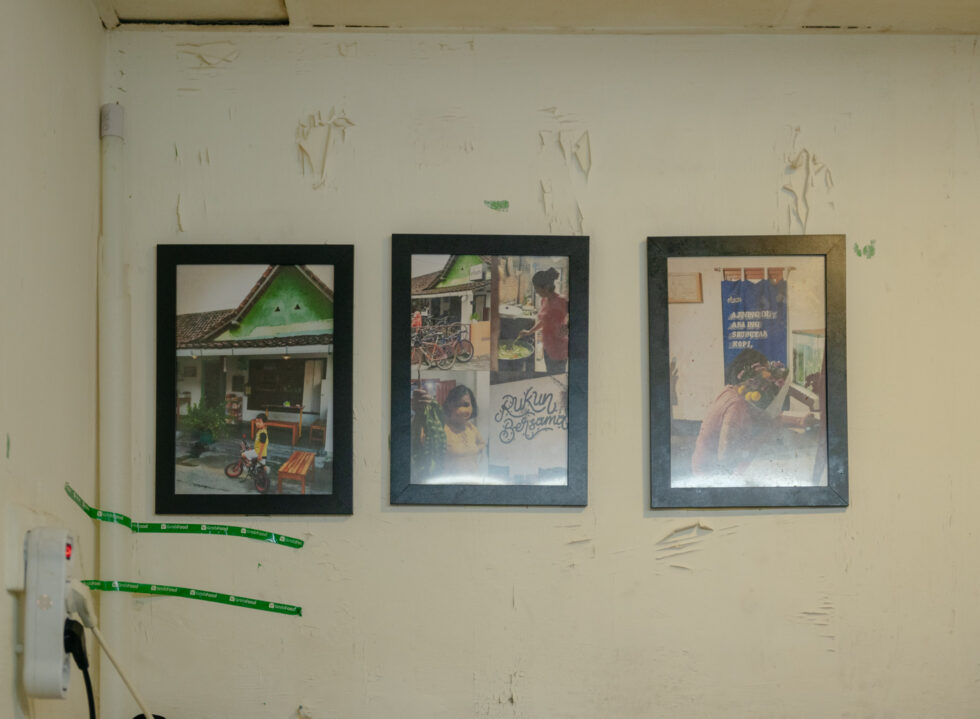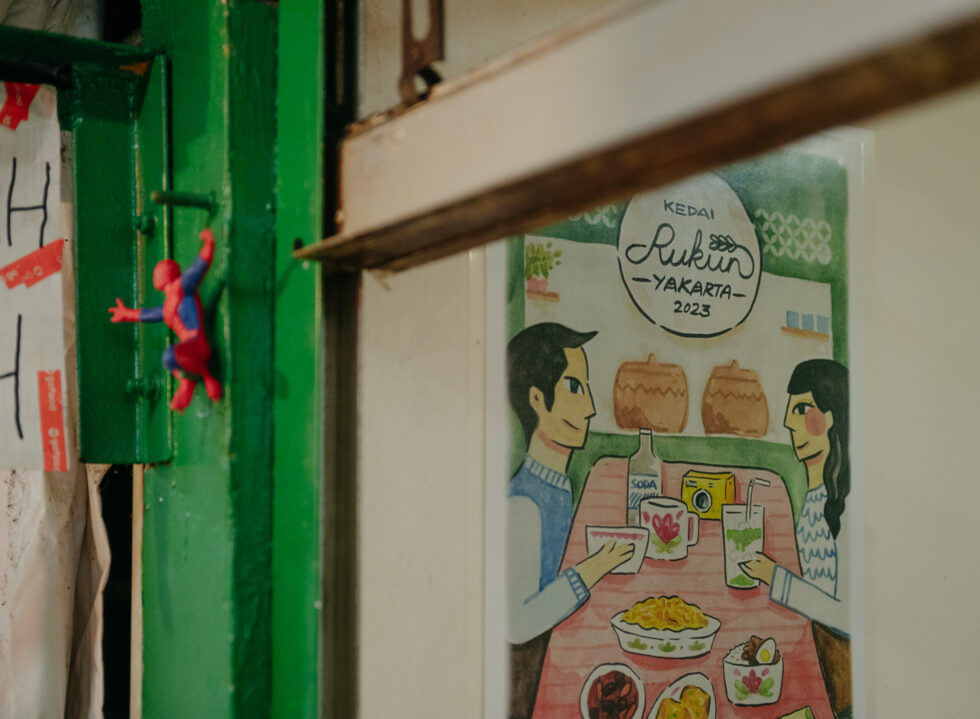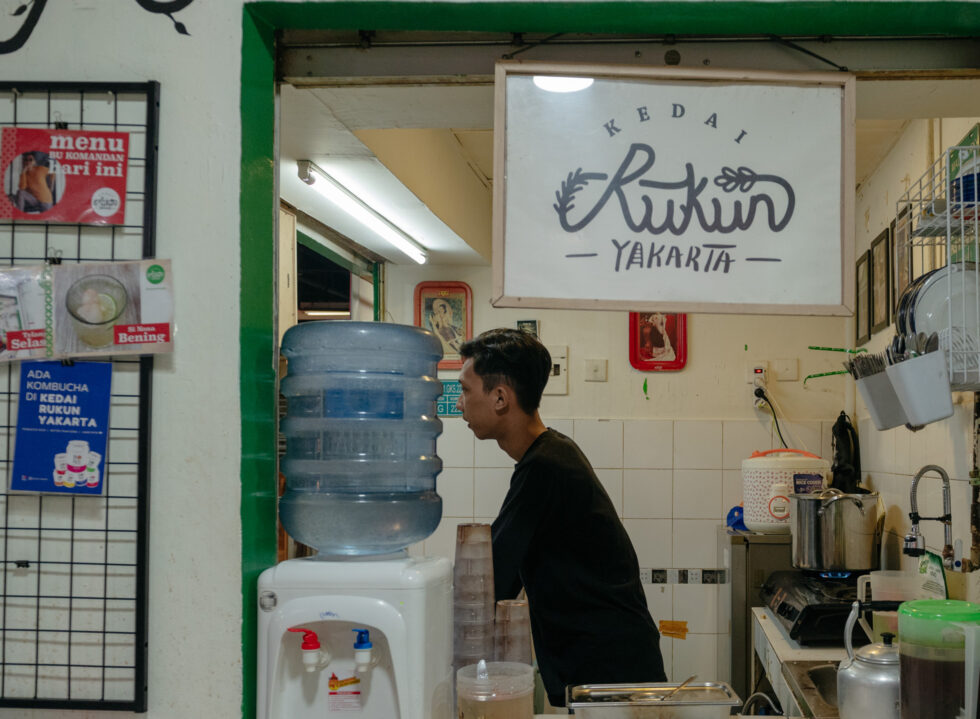Five years ago, Kedai Rukun started as a simple eatery from a family home in Kadipiro, Yogyakarta. At first, founder Muhammad Bagus ‘Bigoth’ Panuntun only invited friends and acquaintances to enjoy the homemade dishes cooked by his mother, Yuli Hariastuti (known among longtime regulars as ‘Bu Komandan’). But words spread easily, and the place later became one of Yogyakarta’s favourite local haunts, especially among college students.
Throughout their five-year run, a lot of their longtime frequenters have settled in Jakarta, spiking many demands to bring Kedai Rukun’s comfort food to the city. Earlier this year, the idea was put to work by Desty Rizki, Bigoth’s older sister who works at a creative agency in Jakarta. The new branch, Kedai Rukun Yakarta (a cheeky wordplay on ‘Jakarta’) joins the crowd of diverse local cuisine in the basement food court of Pujasera Blok M, far away from the calm neighbourhood and breezy terraces of their old location.
The dishes, spice-rich and brimming with broth, retain the essence of Bu Komandan’s Central Javanese home cooking even when there are slight alterations: Garang Asem, a rich and slightly sour chicken dish cooked with bay leaves and ginger in coconut milk is spun into Harang Asem, a version that eliminates the coconut milk for a lighter aftertaste. Mangut Manyung, a smoked manyung fish cooked in a thick yellow broth of turmeric, aromatic ginger, coconut milk and coriander was created under the suggestion of a customer who didn’t like the flabby texture of catfish in their original dish Lele Mangut. In adapting to their new space, they also take on a different cooking method with a gas stove as opposed to the woodfire back home.
Regulars also lend their hands in the drink station, where they tried out the signature drinks being concocted and offered their suggestions, resulting in the refreshing lychee soda Nona Bening as well as Es Telang Selasih, a sweet blend of butterfly pea flower tea and Tjampolay syrup from Cirebon, peppered with basil seeds.
This organic interaction between staff and frequent visitors stems from the original Kedai Rukun experience, where Yuli likes to chat with diners whenever she has time away from the kitchen. Like a mother to her children, sometimes she even pesters regulars who haven’t come by for a while. “Even though we’re only settling in a food court, we still want to bring that sense of coming home to our customers,” shared Desty.
Come over twice, thrice, or bring a new friend along, and the staff standing by the stalls might take notice and start a conversation if it’s not too busy. On late afternoons and weekends, familiar faces can be found hanging around casually at tables and stalls—chatting away with Mas Eko as he prepares their drink in a barista-style setting, or having Mas Angga at the cashier memorise their favourite order.
Surely, the one thing visitors wouldn’t come across at the original location is Pujasera’s hefty lunch rush on weekdays, where workers around Blok M crowd the sweltering basement for a quick, affordable meal before returning to their daily grind. “Another curious thing that only happens in Jakarta is our sales are always down when payday comes,” Desty quipped with a laugh.
